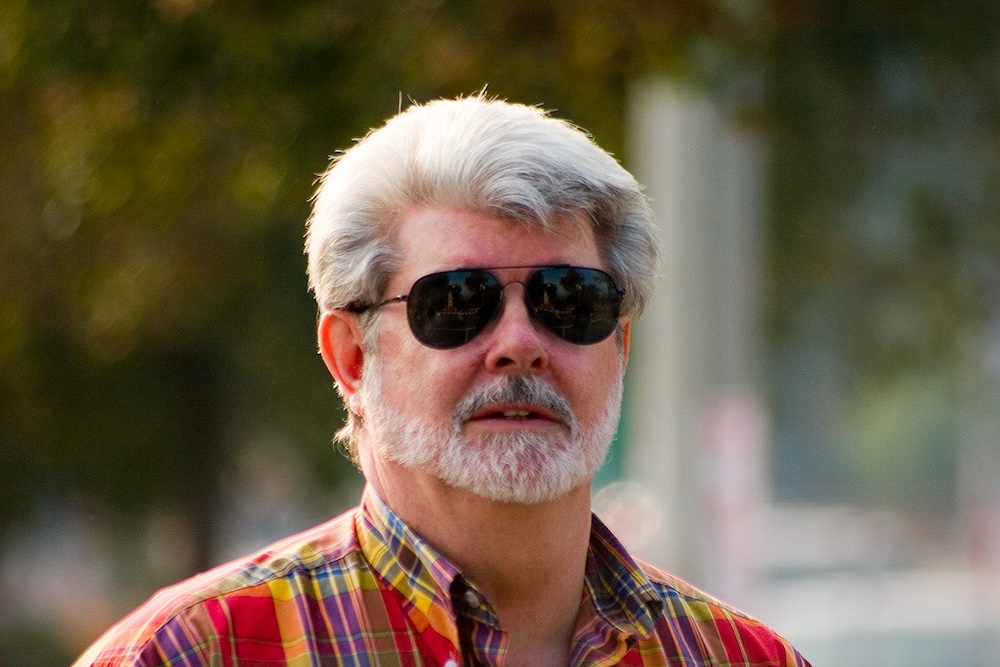Politics
George Lucas SLAMS Woke Critics’ Complaints About White Characters In ‘Star Wars’

George Lucas is firing back at Star Wars diversity critics. The legendary filmmaker who just turned 80, took on his detractors head-on at the Cannes Film Festival, just a day before receiving the prestigious honorary Palme d’Or. Critics have long blasted the iconic space saga for a supposed lack of diversity in its early chapters, but Lucas, who directed or produced the first six installments, didn’t hold back in his defense.
“They would say, ‘It’s all white men.’ I’d say, it’s not. Most of the people are aliens,” Lucas said according to PEOPLE. “And the idea is you’re supposed to accept people for what they are, whether they’re big and furry or whether they’re green and whatever — the idea is all people are equal.”
The Star Wars saga is one of the most iconic and influential franchises in the history of cinema. Lucas’s journey into filmmaking began at the University of Southern California’s School of Cinematic Arts, where he developed his early passion for cinema and met contemporaries like Steven Spielberg. His career took a significant turn with the release of Star Wars (later retitled Star Wars Episode IV: A New Hope) in 1977.
The film not only revolutionized special effects but also introduced audiences to a universe of complex characters, distant planets, and epic battles between good and evil. Its success spawned two immediate sequels: The Empire Strikes Back (1980) and Return of the Jedi (1983), completing the original trilogy.
(Trump Sounds The Alarm On The US Currency – PREPARE NOW)
Lucas said that in his Star Wars universe, the real victims of discrimination were never humans or aliens, but the robots and droids. “And that was a way of saying, people are always discriminating against something, and sooner or later, that’s what’s going to happen,” he explained. He further connected this to current attitudes towards artificial intelligence, adding, “I mean, we’re already starting with AI, saying, ‘Well, we can’t trust those robots.’”
The films introduced a mythic quality with elements of Joseph Campbell’s “The Hero with a Thousand Faces,” resonating deeply with audiences. In 1999, Lucas released the first of three prequels, Star Wars Episode I: The Phantom Menace, followed by Episode II: Attack of the Clones (2002) and Episode III: Revenge of the Sith (2005). These films explored the backstory of Darth Vader.
Lucas also highlighted the prominent roles of strong female characters in each of his Star Wars trilogies, citing Carrie Fisher’s Princess Leia and Natalie Portman’s Padme Amidala as key examples. “Who do you think the heroes are in these stories? What do you think Princess Leia was? She’s the head of the rebellion,” Lucas pointed out. “She’s the one that’s taking this young kid who doesn’t know anything and this boisterous, I-know-everything guy who can’t do anything and trying to save the rebellion with these clowns.”
After selling Lucasfilm to Disney in 2012 for approximately $4 billion, Lucas stepped away from the creative control of the franchise. Disney continued the Star Wars legacy, starting with Episode VII: The Force Awakens in 2015. Lucas’s impact extends beyond Star Wars. He also co-created the Indiana Jones series and contributed significantly to various philanthropic efforts, particularly in education. His visionary approach to storytelling and technology continues to influence filmmakers and audiences worldwide.
VOTE: Do YOU Stand With Harrison Butker Against The Woke Mob?

